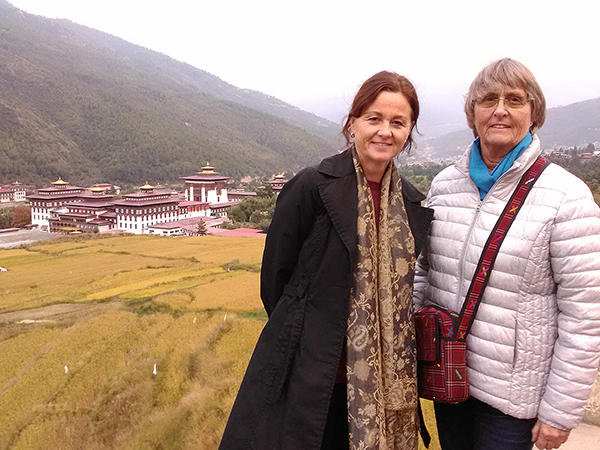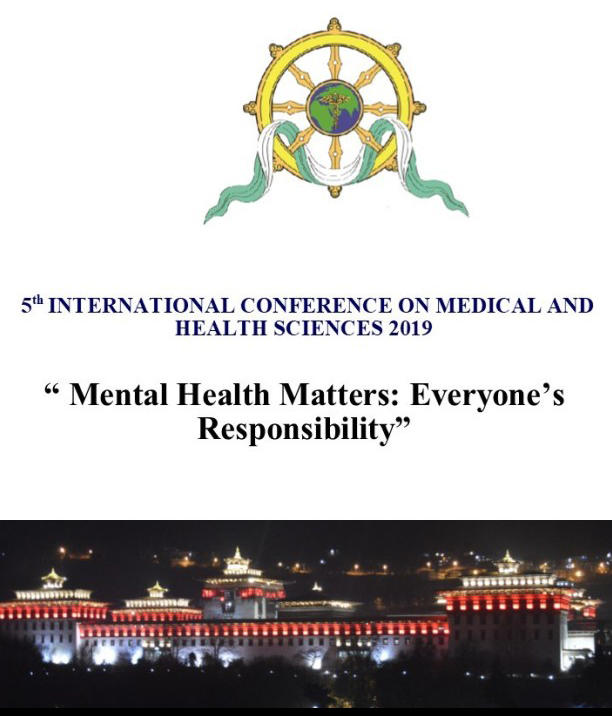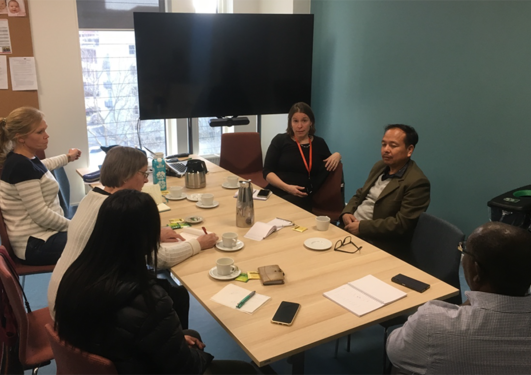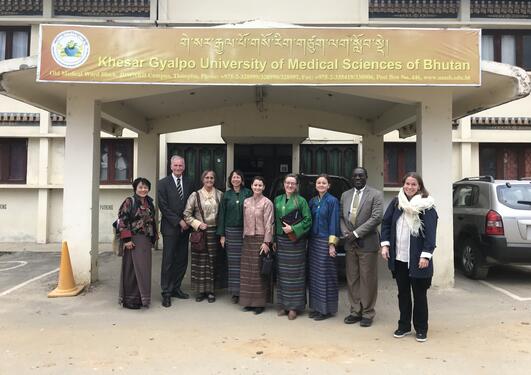UiB-Bhutan collaborators participate in international conference
The Global Mental Health research group (GMHRG) at CIH is embarking on a collaboration with researchers from Bhutan. Together they were responsible for 2 presentations at the 5th International Conference on Medical & Health Sciences 2019.

Hovedinnhold
«Mental Health Matters: Everyone’s Responsibility»
GMHRG members, Solveig Kolaas wrote about the experience.
Norway was represented by two presentations at the Conference. Anne Kippenes gave an oral presentation on ICDP (International Child Development Program) used as parental guidance with caregivers of special needs children (age 0-5). The audience showed a positive interest in this research-based intervention, which has already been introduced in many countries, Nepal being one of them.
Solveig Kolaas had a poster presentation on Possibilities for Prevention of FAS (Fetal Alcohol Syndrome) in Bhutan. The aim was to create awareness about FAS and its life-long implications, and initiate discussion on diagnosing and prevention of FAS in Bhutan. Comments from the audience indicated that there at present is little awareness, but that the issue seemed important because of high alcohol consume in Bhutan.
Informal meetings also important collaboration-building tools
Through formal and informal meetings during their ten days' stay in Bhutan, Kolaas and Kippenes noticed an increasing interest for focusing on promoting factors for ensuring good mental health for children and youths in Bhutan. The present Minister of Health expressed a specific concern for the «1000 golden days», from the start of a pregnancy, when a baby was conceived, the perinatal period and the first two years of life.
A study by collaborating researchers from the Faculty of Health and Public Health (KGUMSB) identifies five main factors as contributing to growth and development in early childhood: nutrition, parental behavior, parenting, social and cultural practices, and environment.
Abstract of Kippenes’ presentation:
ICDP (International Child Development Programme) used as parental guidance with caregivers of special needs children (age 0-5).
The way mothers, fathers and other caregivers nurture and support children in the early years is among the most decisive factors for healthy child development, with lifelong and intergenerational benefits for health, productivity and social cohesion. The International Child Development Programme (ICDP) is a psychosocial preventive programme directed towards parents and other caregivers, aimed at improving childhood conditions. The programme is a sensitization programme by which the caregiver goes through a process of becoming more sensitive and aware of the child's qualities and needs, as well as aware of her own ability to provide loving care and guidance. The ICDP programme has been developed by experts from many countries and is based on research. Read more below.
Abstract of Kolaas’ presentation:
Possibilities for Prevention of Fetal Alcohol Syndrome in Bhutan
During the last decade there has been an increasing focus worldwide on Fetal Alcohol Syndrome (FAS). This is reflected in two articles published in the Lancet: The international charter on prevention of fetal alcohol spectrum disorder (FASD) in 2014, and a comprehensive literature review in 2017. This poster will focus on factors in Bhutan that can promote prevention of FAS in the country, with referral to these articles and to health statistics from Bhutan. Read more below.



